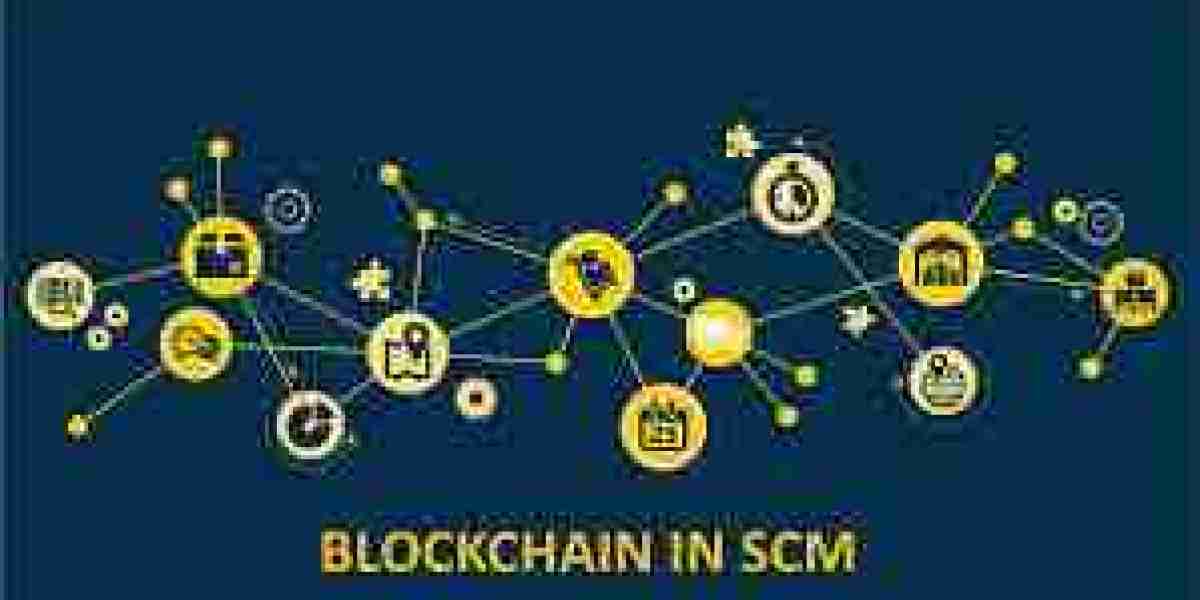The blockchain in supply chain management market is witnessing intense competition as enterprises race to secure market leadership in transforming global supply chains. With the demand for transparency, traceability, and real-time data surging, numerous tech companies, logistics providers, and blockchain startups are carving out their niche. This article analyzes the competitive landscape, spotlighting dominant players, disruptive entrants, and winning strategies shaping the market’s future.

Market Overview: A Growing and Fragmented Ecosystem
The blockchain in supply chain space is still relatively nascent but expanding rapidly. The market is fragmented with a mix of established technology firms, consortium-led platforms, and niche solution providers. Competitive positioning depends heavily on factors such as:
Industry focus (e.g., agriculture, pharma, automotive)
Blockchain type (public, private, or hybrid)
Integration with IoT, AI, and ERP systems
Compliance with regional standards and global interoperability
This diversity fuels innovation but also makes the competitive landscape highly dynamic and complex.
Key Industry Leaders Driving Innovation
1. IBM Corporation
IBM remains a frontrunner in the blockchain space, with its IBM Blockchain platform built on Hyperledger Fabric. Through initiatives like Food Trust and TradeLens (in collaboration with Maersk), IBM has provided real-world blockchain solutions that enhance traceability, security, and efficiency in food and shipping supply chains.
2. Oracle Corporation
Oracle’s Blockchain Cloud Service enables easy integration with existing ERP systems, giving it a strong foothold in enterprise-level supply chain operations. Its key strength lies in offering customizable and scalable blockchain platforms suited for large corporations.
3. SAP SE
SAP’s blockchain solutions, integrated into its business suite (SAP Leonardo and SAP Logistics Business Network), target customers already using its ERP solutions. SAP focuses on smart contract automation and material traceability, offering strong value in manufacturing and pharmaceuticals.
4. VeChain
VeChain leverages its proprietary blockchain (VeChainThor) to provide tailored supply chain applications for sectors like luxury goods, food safety, and automotive. Partnerships with Walmart China and BMW demonstrate its strong use-case orientation and commercial viability.
Emerging Players and Disruptive Innovators
Startups and decentralized platforms are rapidly entering the space with agile, purpose-driven solutions.
Everledger specializes in asset provenance, starting with diamonds and expanding into wine, art, and batteries.
Modum combines blockchain and IoT to create verified environmental condition reports for pharma logistics.
Provenance targets ethical supply chains by enabling consumer-facing traceability in the fashion and food sectors.
Ambrosus integrates blockchain with sensors to track product quality in real-time—ideal for perishable goods.
These companies focus on niche areas and are gaining traction through partnerships and pilot projects that showcase measurable improvements in transparency and efficiency.
Strategic Collaborations Shaping Competitive Advantage
In such a rapidly evolving environment, partnerships are central to competitiveness. Leading firms are forming alliances to:
Establish standards and interoperability across platforms.
Combine blockchain with IoT and AI for end-to-end digital supply chains.
Expand into new geographical markets or verticals.
For example:
IBM + Maersk’s TradeLens focuses on digitizing shipping documentation and increasing efficiency in global logistics.
Microsoft + Infor + R3 are working on scalable enterprise blockchain frameworks.
VeChain + PwC + DNV GL provide compliance and trust in high-value supply chains.
Such collaborations lower the adoption barrier and amplify platform credibility.
Regional Competitiveness
North America leads in adoption and R&D, with U.S.-based tech giants dominating early-stage deployments.
Europe emphasizes data privacy, ethical sourcing, and sustainability, giving rise to tailored blockchain solutions for compliance-driven industries.
Asia-Pacific is catching up fast, with governments in China, Singapore, and South Korea supporting blockchain integration in logistics, agriculture, and trade.
Startups in Latin America and Africa are increasingly using blockchain to bypass infrastructural inefficiencies, especially in food and commodity supply chains.
Competitive Trends to Watch
Convergence with AI and IoT: Companies offering integrated solutions are gaining market share faster.
Open-source protocols vs. proprietary chains: Some firms are betting on transparency and community-driven improvements, while others are investing in patented systems for scalability.
Regulatory alignment: Vendors who can quickly adapt to regulatory frameworks (like GDPR or FDA guidelines) are seeing faster deployment in regulated industries.
User experience: Platforms with intuitive interfaces and low learning curves are being adopted more rapidly by SMEs and logistics partners.
Conclusion
The blockchain in supply chain management market is heating up as players big and small compete on technology, agility, and industry alignment. Market leaders like IBM and Oracle are being challenged by nimble innovators and regional disruptors focused on specific verticals. As partnerships deepen and platforms mature, competitive differentiation will hinge on scalability, ease of integration, and ability to deliver measurable supply chain efficiencies. Companies that innovate while remaining interoperable and regulatory-ready will emerge as long-term leaders in this transformative space.




